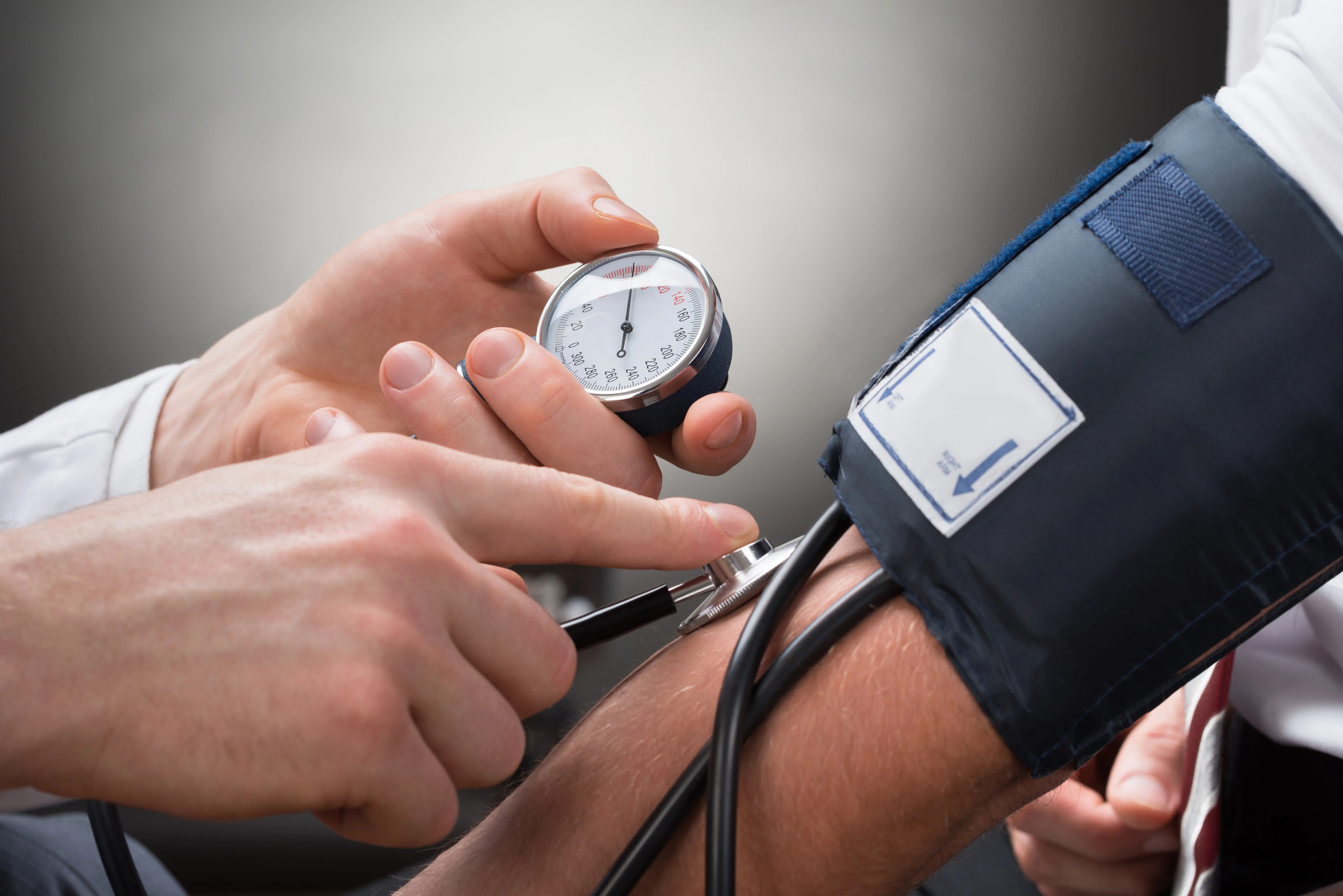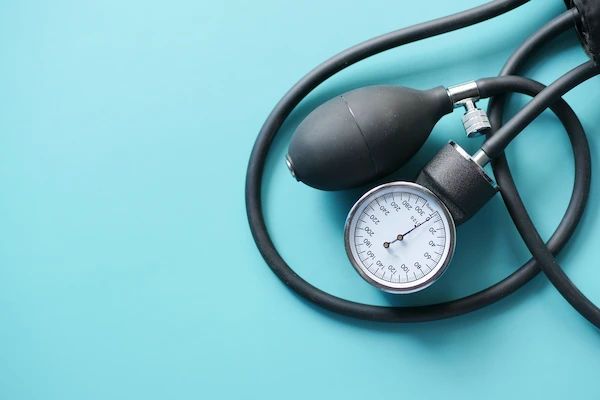High Blood Pressure in Seniors: Causes, Symptoms, and Management
Senior hypertension explained with clear blood pressure tips: causes, symptoms, and safe management to lower risks and protect your heart and brain.


Introduction
High blood pressure is one of the most common health issues affecting older adults, yet it often has no obvious symptoms. That’s why understanding senior hypertension—and acting early—is so important. Left untreated, it increases the risk of heart disease, stroke, kidney problems, and cognitive decline. The good news: with the right blood pressure tips, simple lifestyle changes, and personalised medical care, most people can manage their numbers and protect their long-term health. This guide explains what causes high blood pressure in seniors, how to spot warning signs, and the safest, most effective ways to bring it under control.
What Is High Blood Pressure and Why It Matters for Older Adults
High blood pressure (hypertension) means the force of blood pushing against artery walls is consistently too high. Over time, this can damage blood vessels and organs. In older adults, arteries tend to stiffen with age, making hypertension more common and sometimes more challenging to control.
Key points:
- It’s often “silent”: most people feel fine even when their numbers are high.
- High readings over time increase the risk of heart attack, stroke, heart failure, kidney disease, vision loss, and cognitive decline.
- Many experts recommend a target below 130/80 mm Hg for most adults if it can be achieved safely; however, targets should be individualised by your clinician.
Understanding Your Numbers
- Systolic (top number): pressure when your heart beats.
- Diastolic (bottom number): pressure when your heart rests.
- A single high reading doesn’t always mean hypertension. Doctors look at patterns over time, ideally including readings from home.
Common Causes of High Blood Pressure in Seniors
Senior hypertension often results from a mix of age-related changes and other factors.
Age-Related and Lifestyle Factors
- Arterial stiffening with age
- Diets high in sodium (salt) and ultra-processed foods
- Low intake of fruits, vegetables, and potassium-rich foods
- Physical inactivity and excess weight
- Excess alcohol use and tobacco exposure
- Poor sleep, including sleep apnoea
- Chronic stress and social isolation
Medical Conditions and Medications
Certain health issues can raise blood pressure or make it harder to control:
- Chronic kidney disease, diabetes, thyroid disease
- Obstructive sleep apnoea
- Narrowed kidney arteries (renal artery stenosis)
- Hormonal conditions (e.g. primary aldosteronism)
Some medications and supplements can raise blood pressure:
- Nonsteroidal anti-inflammatory drugs (NSAIDs)
- Some decongestants and cold medicines
- Certain herbal supplements and stimulant products
- Some antidepressants
- Always review all prescription and over-the-counter products with your healthcare provider.
Symptoms: What to Watch For—and When to Seek Help
Hypertension is usually symptom-free. Relying on symptoms to diagnose or track your blood pressure is unsafe.
Possible but Unreliable Signs
Some people report headaches, dizziness, or nosebleeds—but these are not reliable indicators of blood pressure. Regular measurement is the only way to know your numbers.
Warning Signs of an Emergency
Call emergency services if you have a blood pressure reading around 180/120 mm Hg and any of these symptoms:
- Severe headache or chest pain
- Shortness of breath
- Vision changes
- Confusion, trouble speaking, or sudden weakness/numbness
- Back pain
- Even without symptoms, a very high reading that stays that way after a few minutes of rest warrants urgent medical advice.
How to Check Blood Pressure at Home: Practical Blood Pressure Tips?
Home monitoring gives a more complete picture than office readings alone and helps your clinician fine-tune your care. Here are some tips to keep in mind while testing from home:
- Choose the right device: use a validated, automatic, upper-arm cuff that fits your arm properly.
- Prepare well: avoid caffeine, smoking, and exercise for 30 minutes before a reading. Empty your bladder. Rest quietly for 5 minutes.
- Sit correctly: sit with your back supported, feet flat on the floor (not crossed), and arm supported at heart level.
- Take multiple readings: take two measurements, one minute apart, in the morning before medications and in the evening before dinner, for 3–7 days. Record all readings and share the average with your clinician.
- Check for postural drops: especially in older adults, ask your clinician how to check blood pressure while sitting and again after standing for 1–3 minutes to screen for dizziness or falls risk.
- Bring your monitor to appointments: your care team can verify accuracy and technique.
Consult Top Specialists
Lifestyle Management That Works
Lifestyle steps can meaningfully lower blood pressure and improve heart health. These measures support, and sometimes reduce the need for, medication.
Eat for a Healthy Heart (DASH-Style)
- Focus on: vegetables, fruits, beans, lentils, nuts, seeds, whole grains, fish, and lean proteins.
- Limit: sodium, ultra-processed foods, red and processed meats, sugary drinks, and excess saturated fats.
- Sodium goals: aim for less than 2,300 mg sodium per day; many adults benefit from a lower target (such as 1,500 mg) if advised by their clinician.
- Potassium: adequate potassium from foods (bananas, leafy greens, beans, yoghurt) can help but check with your clinician first, especially if you have kidney disease or take certain medications.
Move More Safely
- Aerobic activity: aim for about 150 minutes per week of moderate activity (like brisk walking).
- Strength training: include muscle-strengthening exercises at least 2 days per week.
- Balance and flexibility: add balance training (e.g. tai chi) to help prevent falls.
- Start low and go slow: if you’re new to exercise or have multiple health conditions, ask your clinician for a safe plan.
Weight, Alcohol, Tobacco, Sleep, and Stress
- Weight: even modest weight loss (5–10% of body weight if you have overweight) can reduce blood pressure.
- Alcohol: if you drink, do so in moderation up to 1 drink per day for women and up to 2 for men; some older adults may need stricter limits.
- Tobacco: quit smoking and avoid second-hand smoke.
- Sleep: aim for 7–8 hours of quality sleep. Talk to your clinician about screening for sleep apnoea if you snore or feel very sleepy during the day.
- Stress: try brief daily practices such as paced breathing, meditation, or gentle yoga. Staying socially connected also supports heart health.
Medications: What to Expect and How to Stay Safe
For many people, lifestyle changes alone aren’t enough. Medications are safe and effective when used as directed. Your clinician will choose the best option(s) based on your health history, other conditions, and how your blood pressure responds.
Common Blood Pressure Medicine Types
- Thiazide or thiazide-like diuretics
- ACE inhibitors or ARBs
- Calcium channel blockers
- Beta blockers (often used for specific indications)
- Often, two medications from different classes are used together for better control.
Safety Tips for Seniors on Blood Pressure Medicine
- Take medicines exactly as prescribed; don’t skip doses.
- Report side effects such as dizziness, swelling in the legs, cough, or electrolyte changes; your clinician can adjust your plan.
- Watch for orthostatic hypotension: if you feel lightheaded when standing, mention it medication timing or doses may need adjustment.
- Review all medications regularly, including over-the-counter drugs and supplements.
- Keep routine lab checks if recommended (for kidney function and electrolytes).
Senior Hypertension and Everyday Living: Practical Tips
Bringing your numbers down is about steady habits and teamwork.
- Build routines: link medications and home readings to daily activities (e.g. after brushing teeth).
- Make meals simpler: keep low-sodium staples on hand—no-salt-added beans, frozen vegetables, unsalted nuts, herbs, and spices.
- Read labels: “low sodium” means 140 mg or less per serving; aim for products with minimal added salt.
- Plan movement: short, frequent walks add up. Use reminders or walking buddies for motivation.
- Stay hydrated: dehydration can affect blood pressure and increase fall risk, especially in hot weather.
- Schedule regular check-ups: share your home readings and questions; adjust your plan as needed.
Personalised Targets and Follow-Up
Blood pressure targets can vary based on age, overall health, kidney function, diabetes, and tolerance of medications. Many organisations support a goal below 130/80 mm Hg for most adults if it can be achieved without side effects such as dizziness or falls. Work with your clinician to set a safe, realistic target and decide how often to check at home and in the clinic.
Consult Top Specialists
Consult Top Specialists

Dr. Chethan T L
General Physician/ Internal Medicine Specialist
5 Years • MBBS, MD, DNB (General Medicine)
Bengaluru
Apollo Medical Center, Marathahalli, Bengaluru

Dr. Rajib Ghose
General Physician/ Internal Medicine Specialist
25 Years • MBBS
East Midnapore
VIVEKANANDA SEBA SADAN, East Midnapore

Dr Vinay Kumar A V
Nephrologist
8 Years • MBBS, MD - General Medicine, DM - Nephrology
Bilaspur
Apollo Hospitals Seepat Road, Bilaspur
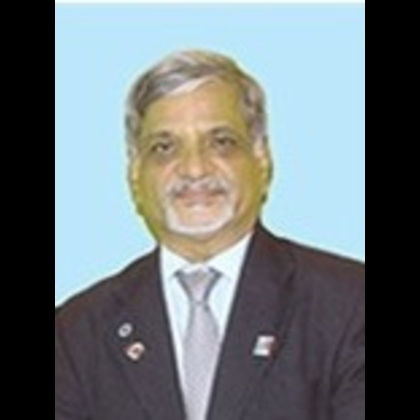
Dr. S V Kulkarni
General Physician/ Internal Medicine Specialist
42 Years • MD (Medicine), F.A.C.P. , F.A.C.M. , F.G.H. , F.I.C.P. , F.D.I. , F.G.S.I., Advance Fellowships in Geriatrics, Industrial Health, Diabetes, Thyroid Diseases & Global Health
Mumbai
Apollo Hospitals CBD Belapur, Mumbai
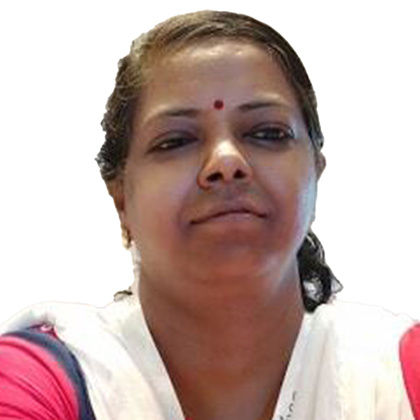
Dr. Kavitha Subash
General Physician/ Internal Medicine Specialist
15 Years • MBBS, MD
Chennai
Apollo Speciality Hospitals Vanagaram, Chennai
Consult Top Specialists

Dr. Chethan T L
General Physician/ Internal Medicine Specialist
5 Years • MBBS, MD, DNB (General Medicine)
Bengaluru
Apollo Medical Center, Marathahalli, Bengaluru

Dr. Rajib Ghose
General Physician/ Internal Medicine Specialist
25 Years • MBBS
East Midnapore
VIVEKANANDA SEBA SADAN, East Midnapore

Dr Vinay Kumar A V
Nephrologist
8 Years • MBBS, MD - General Medicine, DM - Nephrology
Bilaspur
Apollo Hospitals Seepat Road, Bilaspur

Dr. S V Kulkarni
General Physician/ Internal Medicine Specialist
42 Years • MD (Medicine), F.A.C.P. , F.A.C.M. , F.G.H. , F.I.C.P. , F.D.I. , F.G.S.I., Advance Fellowships in Geriatrics, Industrial Health, Diabetes, Thyroid Diseases & Global Health
Mumbai
Apollo Hospitals CBD Belapur, Mumbai

Dr. Kavitha Subash
General Physician/ Internal Medicine Specialist
15 Years • MBBS, MD
Chennai
Apollo Speciality Hospitals Vanagaram, Chennai
More articles from High blood pressure hypertension
Frequently Asked Questions
What is a good blood pressure target for seniors?
Many experts recommend keeping blood pressure below 130/80 mm Hg if it’s safe and well tolerated. However, targets should be individualised. Your clinician will consider your overall health, other conditions, and any symptoms like dizziness when standing.
Can I feel when my blood pressure is high?
Usually not. Hypertension is called a “silent” condition. Don’t rely on symptoms; use a validated home monitor and share readings with your healthcare team.
Which foods help lower blood pressure?
A DASH‑style pattern - vegetables, fruits, beans, nuts, seeds, whole grains, and fish - supports healthier numbers. Limiting sodium and ultra‑processed foods is key. Ask your clinician about potassium‑rich foods if you have kidney disease or take certain medicines.
Do coffee and tea raise blood pressure?
Caffeine can temporarily raise blood pressure in some people. If you notice a rise after caffeinated drinks, consider limiting intake or checking your numbers before and 30–60 minutes after to see your personal response.
What are the best blood pressure tips I can start today?
Use a validated upper‑arm monitor and check at home, reduce sodium, add a daily walk, take medications as prescribed, and schedule a medication/supplement review with your clinician.
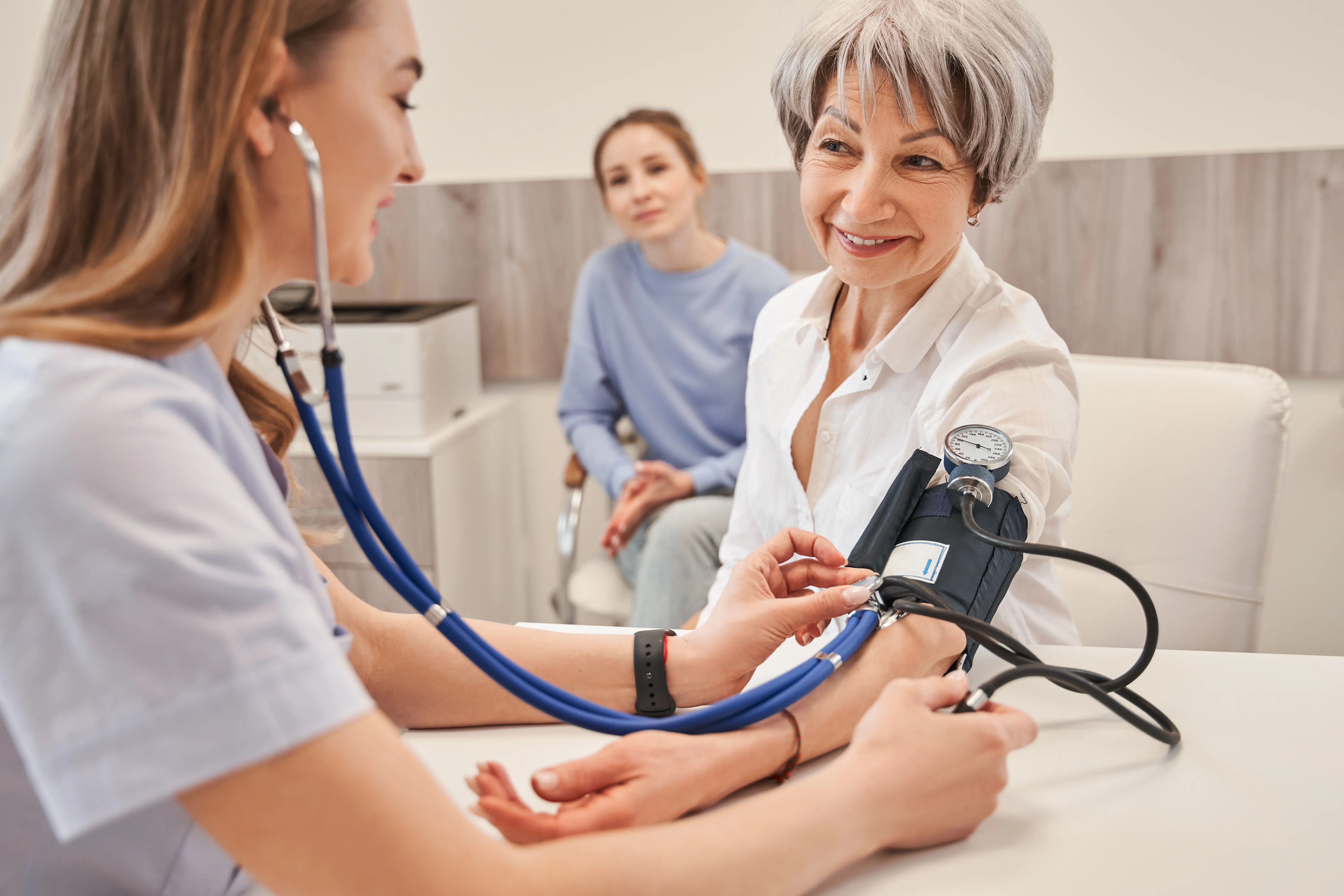
_1.webp)
.webp)
